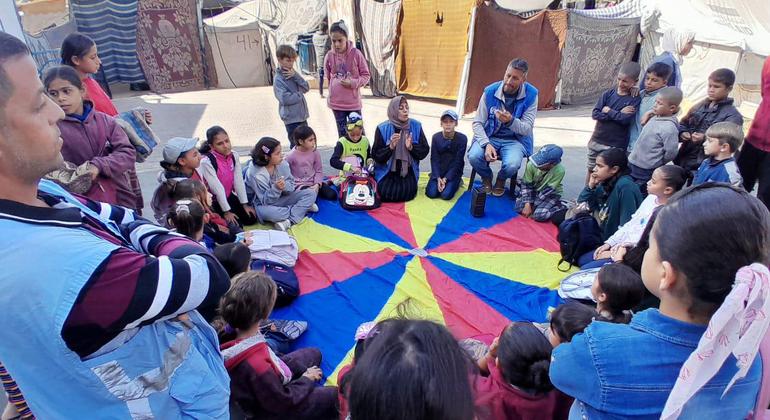In his annual new year address to the General Assembly, United Nations Secretary-General António Guterres outlined his key priorities for the global organization, acknowledging the challenges facing the world while also emphasizing the progress that has been made in various areas.
Guterres began by recognizing the turmoil that exists in the world and the feeling of being overwhelmed that can result from it. However, he urged delegates to never lose sight of the progress and potential that exists, pointing to positive developments such as the ceasefire in Lebanon and the recent election of a President in the country after a two-year stalemate.
One area where significant progress has been made is in climate action, with Guterres highlighting the fact that the world now invests almost twice as much in clean energy as it does in fossil fuels. Solar and wind energy are now the cheapest sources of new electricity and the fastest-growing sources in history. This demonstrates the commitment of the United Nations to combating global warming and promoting sustainable energy practices.
On a social front, Guterres noted that girls in much of the world have achieved parity in education, while more children are surviving today than ever before. HIV infections are declining, as are malaria mortality rates. These achievements reflect the values of the UN and the progress that has been made in improving the lives of people around the world.
Despite these positive developments, Guterres also acknowledged the challenges that exist, referring to them as a modern-day Pandora’s Box of ills. Protracted wars, inequality, the climate crisis, and out-of-control technology are just some of the issues that the world is facing. Human rights are under attack, and conflicts are multiplying in various regions, including the Middle East, Ukraine, Sudan, the Sahel, and Haiti.
Guterres called for negotiators working on a Gaza ceasefire to finalize the deal and emphasized the importance of denying extremists a veto over a peaceful future in the region. He announced plans to travel to Lebanon, where positive developments could lead to a new era of peace and security between Israelis and Lebanese.
In tackling inequality, Guterres emphasized the need to accelerate progress on the Sustainable Development Goals (SDGs) through multilateral reform. He also highlighted the role of discrimination and hate speech in fueling inequality and the importance of strengthening communities of belonging in the face of disinformation and hate speech on social media platforms.
The climate crisis was another key focus of Guterres’ address, with the UN chief pointing to the deadly effects of a warming planet and extreme weather events that are impacting people worldwide. Despite the challenges, Guterres expressed hope that significant progress can be made in addressing the climate crisis and promoting sustainable practices.
Overall, Guterres described the UN as a force of construction that is constantly working to strengthen how it operates and delivers solutions to global problems. While there are significant challenges facing the world, the progress that has been made in areas such as education, healthcare, and climate action demonstrates the potential for positive change and the importance of continued international cooperation and commitment to shared goals.









